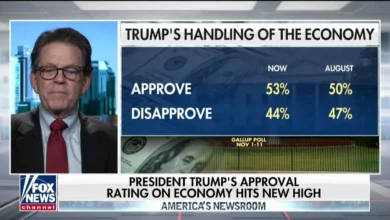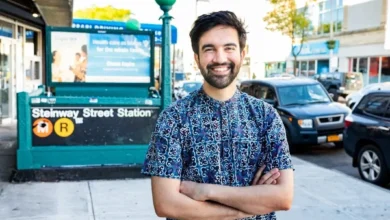Venezuelan Migrants Deportation Protection Expanded by Judges

Venezuelan migrants deportation protection has become a critical issue as federal judges in Texas and New York expand measures safeguarding vulnerable individuals from removal. Recent rulings have issued temporary restraining orders that halt the U.S. government’s efforts to deport Venezuelans, benefiting those detained in a Texas facility and under the jurisdiction of New York courts. These landmark decisions come in response to mounting deportation news, highlighting the urgent need for humanitarian relief in light of the complex legal landscape surrounding the Alien Enemies Act. With preliminary injunction hearings set for later this month, the judicial system is facing the pressing task of ensuring due process for these migrants, many accused under dubious circumstances. As the protections grow, the spotlight remains on how Texas courts ruling and New York judges’ decision will shape future legal recourse for Venezuelan migrants seeking refuge in the U.S.
The recent developments in Venezuelan migration have sparked extensive discussions surrounding the legal protections available for individuals fleeing turmoil. The expansion of temporary safeguards has garnered attention as courts address the precarious situation of migrants at risk of deportation. With an influx of Venezuelan nationals facing serious threats to their safety, the judicial interventions in Texas and New York highlight the critical intersection of immigration law and humanitarian needs. Legal analysts are closely monitoring these cases, particularly in the context of the ongoing complexities introduced by the Alien Enemies Act. As the debate continues, advocates stress the importance of ensuring that all migrants receive fair treatment and adequate legal support during their litigation processes.
Understanding the Temporary Protection for Venezuelan Migrants
Recent judicial decisions have provided significant relief for Venezuelan migrants at risk of deportation, as federal judges in Texas and New York legal systems expand the scope of temporary protection orders. Initially put in place to safeguard Venezuelans in specific detention facilities, the rulings have now been broadened to encompass a wider range of individuals facing deportation within these states. Particularly, those affected include immigrants in cities like Houston and New York, and this expansion reflects a growing recognition of the complexities surrounding immigration law and the protections due to these individuals.
The temporary protection measures stem from mounting legal challenges against the U.S. government, primarily framed through class-action lawsuits initiated by the ACLU and other advocacy groups. These lawsuits argue against the deportation proceedings, particularly under the Alien Enemies Act, which has been criticized given the U.S.’s current non-war status with Venezuela. As a result, the recent rulings not only pause deportations but also emphasize the necessity of due process, allowing Venezuelan migrants the opportunity to contest their deportation in court.
Texas Courts and Their Role in Protecting Venezuelan Migrants
The Texas court system has played a pivotal role in providing emergency relief to Venezuelan migrants. Judge Fernando Rodriguez Jr.’s recent ruling extends protection to all Venezuelans detained within the judicial district, reflecting a proactive judicial response to the realities many face amidst ongoing deportation threats. Such measures are crucial as they ensure that migrants are not removed from the U.S. without sufficient legal protections in place, adhering to the Supreme Court’s requirements for due process.
Additionally, Texas courts are now positioned as a critical battleground for immigration rights, as the state sees a significant concentration of Venezuelan migrants. This judicial activism can be seen as an essential support system for individuals caught in the web of immigration complications. Recent cases highlight not only the legal challenges Venezuelans face but also the urgent need for humane policies that recognize their plight and potential risks upon deportation.
New York Judges’ Decision on Venezuelan Migrants’ Protection
The New York judiciary has also made impactful strides in expanding protections for Venezuelan migrants facing potential deportation. Judge Alvin K. Hellerstein’s adjustments to his temporary restraining orders underscore the city’s commitment to ensuring humane treatment and legal recourse for those detained. By widening the scope of protections to include anyone under the Presidential Proclamation’s jurisdiction detained locally, the New York courts are pushing back against loose deportation practices and shining a light on the need for comprehensive immigration reform.
Moreover, the decisions rendered in New York highlight a cooperative effort between federal and state judicial systems to safeguard rights for immigrant communities, particularly for groups like Venezuelans who are unjustly labeled. With preliminary injunction hearings pending, advocates are optimistic that the legal framework emerging from these courts will set a precedent for greater protections and more robust considerations of individual circumstances in immigration cases.
The Impact of Supreme Court Ruling on Venezuelan Migrants
The U.S. Supreme Court’s recent ruling allowing the administration to resume deportations under the Alien Enemies Act has sent ripples through the immigration landscape, particularly for Venezuelan migrants. While the ruling does permit deportations, it simultaneously imposes a critical stipulation that these individuals must be afforded due process prior to any removal action. This pivotal condition has paved the way for the Texas and New York judicial responses, emphasizing the fragility and importance of migrants’ rights in the face of an aggressive deportation strategy.
This attention to due process marks a significant shift towards safeguarding the rights of vulnerable populations like Venezuelan migrants. Legal advocates argue that without these protections, individuals can be rapidly expelled without a fair chance to advocate for their legal standing. Such a crisis calls for continued vigilance and advocacy within the court systems, as each ruling establishes a new landscape for immigration protection under complex legal frameworks.
Class-Action Lawsuits: A Shield for Venezuelan Migrants
Class-action lawsuits have emerged as a vital tool in the fight against unfair deportations of Venezuelan migrants in the United States. Initiated by organizations like the ACLU, these lawsuits not only seek to halt deportations but also challenge the legality of the Alien Enemies Act as it applies to individuals who are not engaged in combat situations. By litigating on behalf of a larger group, the lawsuits amplify the voices of Venezuelan migrants and rally public support for their legal rights.
These legal challenges have broad implications, as they can set significant precedents for migrant protections and the parameters of immigration enforcement. With preliminary injunction hearings set to start later this month in Texas and New York, the outcomes could further define the legal landscape surrounding deportation policies and how they affect various immigrant communities. This legal momentum is critical as advocates push for a fairer system that recognizes the unique circumstances of each individual migrant.
The Local Impact of Deportation News on Venezuelan Communities
Deportation news, particularly concerning Venezuelan migrants, creates a profound impact on local communities across Texas and New York. As fears of deportation rise among Venezuelans, family networks, invaluable cultural ties, and local economies are destabilized. The recent judicial rulings have offered a glimmer of hope, but uncertainty looms large as many still find themselves grappling with anxiety and fear of being uprooted from their homes.
Additionally, local organizations and community leaders are mobilizing to provide support and resources for Venezuelan migrants facing the threat of deportation. Support services ranging from legal assistance to emotional support are essential during these tumultuous times. The community’s response to these deportation fears highlights the resilience of Venezuelan immigrants and underscores the need for continued advocacy and support to ensure their rights are upheld.
The Role of the ACLU in Protecting Migrants’ Rights
The ACLU plays a critical role in the defense and protection of vulnerable populations, particularly Venezuelan migrants facing deportation. Their legal strategies, including the filing of class-action lawsuits, have been instrumental in challenging government practices under the Alien Enemies Act. By advocating for migrants’ rights in courts, the ACLU not only seeks immediate relief for those at risk but also aims to bring long-term reforms to immigration laws that disproportionately affect these communities.
Through their relentless efforts, the ACLU illuminates the need for judicial accountability and fair treatment under the law. Their involvement in recent cases highlights the intersection of litigation and advocacy, demonstrating how legal challenges can catalyze broader discussions about immigration policy and humanitarian practices. The continued involvement of organizations like the ACLU is crucial as they strive to uphold fundamental rights for all individuals, regardless of their national origin.
Future Considerations for Venezuelan Migrants in the U.S.
As the situation for Venezuelan migrants unfolds, there are numerous considerations on the horizon. The outcomes of preliminary injunction hearings in Texas and New York will be pivotal, potentially shaping future policies surrounding deportation and asylum for Venezuelan individuals. Stakeholders in immigration advocacy are closely monitoring these developments, understanding that the decisions made now will reverberate through legal systems and immigrant communities for years to come.
Furthermore, ongoing dialogues among policymakers, community leaders, and legal advocates are essential in crafting comprehensive solutions that address the unique challenges faced by Venezuelan migrants. The integration of humanitarian considerations into immigration policy remains a significant area of focus. As courts evaluate the legality of current deportation practices, the need for thorough and fair treatment for Venezuelans seeking refuge in the U.S. cannot be overstated.
Frequently Asked Questions
What are the recent developments regarding Venezuelan migrants deportation protection in Texas and New York?
Federal judges in Texas and New York have recently expanded temporary protection orders preventing the deportation of Venezuelan migrants. This includes individuals held in detention facilities and those in federal jurisdictions. The decision comes in light of class-action lawsuits aimed at protecting these migrants from being removed under the Alien Enemies Act.
How do the Texas courts ruling affect Venezuelan migrants facing deportation?
The Texas courts ruling has expanded temporary restraining orders to protect Venezuelan migrants across the state. Judge Fernando Rodriguez Jr. has stated that all Venezuelans detained in his district, including major cities like Houston and McAllen, are now included in the protection from deportation.
What does the New York judges decision mean for Venezuelan migrants under deportation risk?
The New York judges decision has amended protections for Venezuelan migrants, safeguarding those detained in local custody and expanding the scope of individuals covered under the temporary restraining orders. This ruling marks a significant step towards ensuring that Venezuelans receive due process before any deportation.
What legal actions have led to the expanded temporary protection for Venezuelan migrants?
The expanded temporary protection for Venezuelan migrants has resulted from class-action lawsuits filed by the ACLU and other legal organizations. These lawsuits aim to prevent deportations of Venezuelans accused of being gang members and to ensure that due process is provided, as required by a recent Supreme Court ruling.
Will the temporary protection orders for Venezuelan migrants cover those detained in other states?
Currently, the temporary protection orders specifically issued by Texas and New York judges apply only within their jurisdictions. However, ongoing legal actions may inspire similar protective measures in other states as the situation develops.
What does the term ‘temporary restraining orders’ signify in the context of Venezuelan migrants deportation protection?
Temporary restraining orders in this context are judicial orders that temporarily prevent the U.S. government from deporting Venezuelan migrants. These legal instruments aim to protect individuals from immediate removal and ensure they have the opportunity to challenge their deportation in court.
How can Venezuelan migrants ensure their rights are protected against deportation?
Venezuelan migrants can ensure their rights are protected by seeking legal assistance from organizations like the ACLU that are actively working to challenge deportations. Staying informed about judicial rulings, participating in legal proceedings, and being aware of their rights under the temporary protection orders are crucial steps.
What are the implications of the Supreme Court’s ruling regarding deportation of Venezuelan migrants?
The Supreme Court’s ruling has allowed the administration to resume deportations but mandates due process for detainees. As a result, Venezuelan migrants facing deportation now have the right to a reasonable amount of time to present their case before being removed.
| Key Point | Details |
|---|---|
| Judicial Rulings | Federal judges in Texas and New York expanded temporary restraining orders to protect more Venezuelan migrants from deportation. |
| Expanded Coverage | The protections now include Venezuelans detained in major Texas cities and those under the Southern District of New York. |
| Supreme Court Influence | The rulings followed a Supreme Court decision that allowed deportations but required due process for detainees. |
| Class-Action Lawsuits | Lawsuits filed to prevent deportation of individuals accused under the Alien Enemies Act prompted the judicial decisions. |
| Hearing Scheduled | Preliminary injunction hearings are scheduled for later this month in both states. |
Summary
Venezuelan migrants deportation protection has been reinforced by recent judicial rulings from federal judges in Texas and New York. These rulings allow a broader group of Venezuelan migrants to remain in the U.S. by expanding temporary restraining orders against their deportation. As the legal case unfolds, it is crucial for affected individuals to be aware of their rights and the due process mandated by the courts. Continued advocacy and attention to these developments will be essential as preliminary injunction hearings approach.




